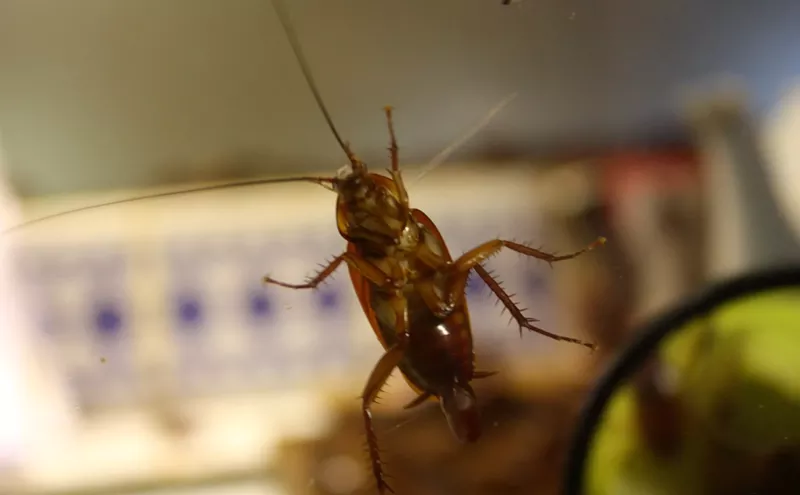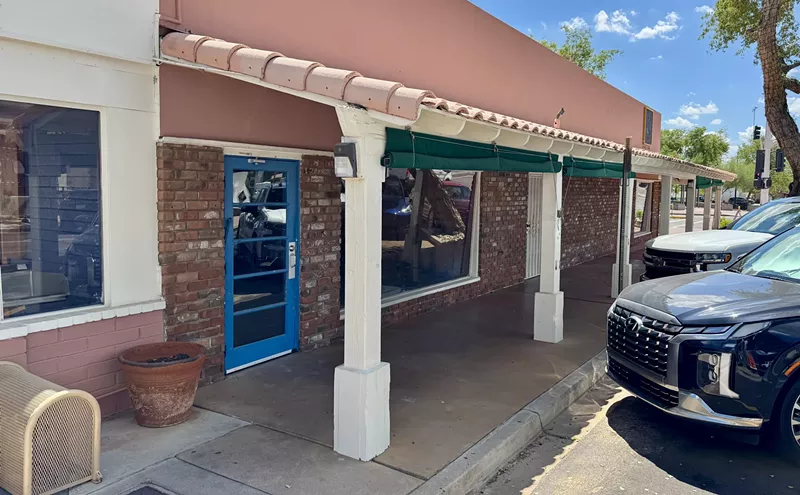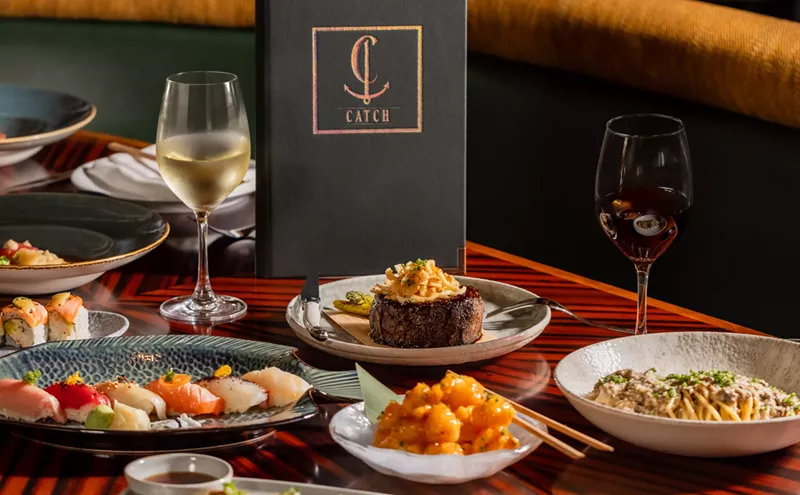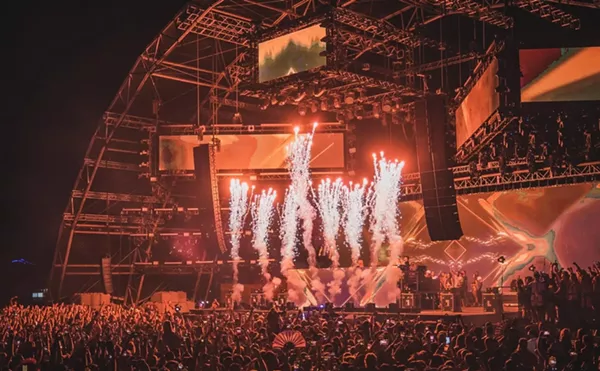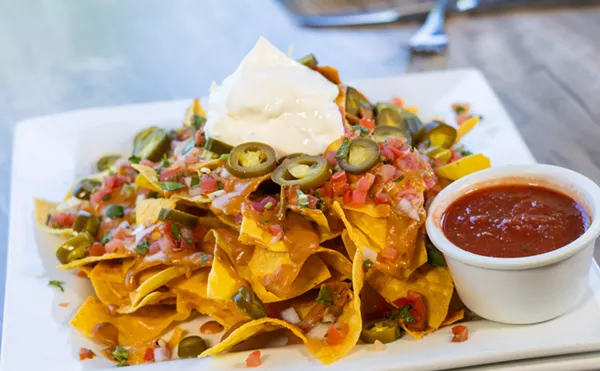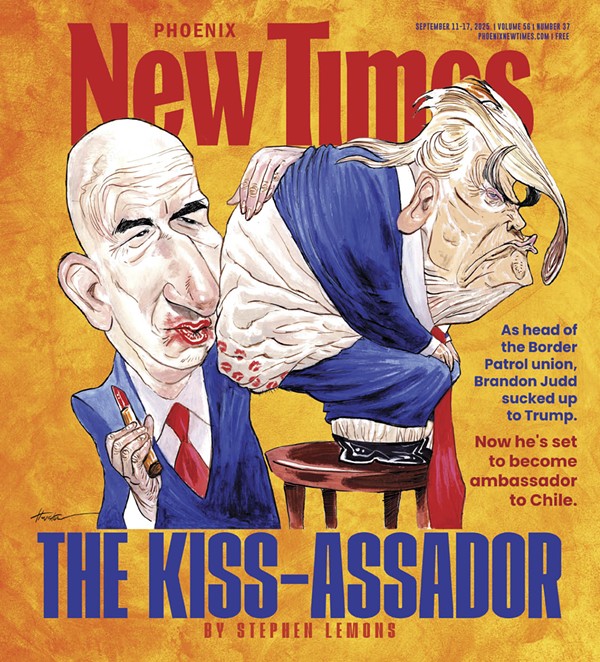It takes guts to call your book a Bible, but Karen MacNeil's nearly 1,000-page tome The Wine Bible is more than worthy.
The second edition of The Wine Bible, released earlier this year, is an approachable and entertaining compendium of wine knowledge, spanning topics such as "How Is Wine Made" and detailing the major wine-growing regions of Italy, France, Spain, Germany, the U.S., and nearly everywhere else on the globe. The book is just as useful for the beginner as it is for sommeliers, as the new addition leaves no stone unturned.
MacNeil claims to be the winner of "every major wine award" in the English language, which sounds like an exaggeration, except that it's absolutely true. MacNeil holds illustrious titles including the James Beard Foundation's "Wine and Spirits Professional of the Year" and has won an Emmy for hosting the PBS series Wine, Food & Friends with Karen MacNeil.
MacNeil will be in Phoenix for four days this week for book-signings, wine dinners, and a chance to meet some of her readers around the Valley. We had the opportunity to chat with MacNeil while she was in New Jersey promoting The Wine Bible to ask a few questions about the book and her influence in the wide world of wine.
The Wine Bible is so extensive, and from your acknowledgements, it appears you had a lot of talented individuals helping you. Even so, how did you begin to strategize the book and go about creating such a vast project?
It’s certainly not the kind of book you write in a weekend. It took four years to do all of the research, all of the tasting, and all of the writing. I love big projects, and part of the challenge in them is, in fact, creating the super-structure, the organization, of a book this big. So I genuinely don’t know how one does that. You can’t take a course. You have to as a writer teach yourself to organize immense amounts of data and materials.The very first Wine Bible was written in 2001, and that book took 10 years because we didn’t have the Internet as a way of researching various facts. Even with the Internet, I’m twice as fast, but it’s a big project.
What’s new in the second edition that wasn’t there in the first?
The wine world has changed substantially in the last 14 years. Every single chapter has been completely rewritten with new side boxes, new maps, new photos. I should point out The Wine Bible is not a critics guide. It doesn’t say here’s the 2012 vintage of “x” and it gets a 91. Those kinds of books become dated very quickly. But The Wine Bible teaches you what makes Bordeaux Bordeaux, and that info doesn’t go out of date so quickly. I sort of look at wine culturally and historically and all of those things move slower than say just a consumer guide. Things do change, so every chapter has been rewritten with all this new information. There are also new sections on China, India, Mexico, Slovania, Peru — places that didn’t exist in the first Wine Bible.
When working through so many topics in the field of enology, did you learn anything new? Were there any big surprises or discoveries for you personally?
One of the things that people love about The Wine Bible is that it’s so easy to learn about wine by reading it, that it’s very conversational in tone. I think I’m a pretty good teacher of wine. Lots of people use this to learn about wine and expand their knowledge. One of the things that I’ve both discovered and worked hard at is being a better teacher and writer. The first Wine Bible was already pretty good at that, but this second one is way better, because I think I’ve become a better teacher and a better writer. So it’s even easier to learn about wine. Some things about wine are genuinely confusing, so it’s important that the writer be a good teacher.
Will you be meeting with any Arizona winemakers, or visiting any tasting rooms or restaurants while you’re here?
I’ve got a packed schedule! The Wine Bible is being honored by the AZ Women’s Roundtable, I’m doing several lunches and dinners, then I’ll be going out and doing some events at the Hermosa Inn. So I hope I have time to sleep! In all seriousness, I think probably in this trip I won’t be able to get to any of the wineries. I’ll be really be doing all these tasting and seminars and events.
The wine industry is so often considered a male-dominated field, but you’re living proof that there are some very accomplished women, too. In what ways do you think the industry could help support and bring up more women?
You know, I think it’s a terrific industry for women. I think it was difficult when I started in the late '70s and early '80s, but today, it’s very different. I was just reading in my inbox about several big symposiums that are gearing up for next year specifically to encourage networking among women in the wine industry and to help other women get into the wine industry. And you know, I think that sort of stuff happens all the time now. I think the wine industry has been aware that it wants to encourage women in the industry, and I think a lot of people are acting on it — it’s not just words being said. There’s no part of America that I’ve been to that doesn’t have at this point some very key women in the wine industry, either as sommeliers or as writers or beverage directors or as parts of local wineries. I think it’s a fantastic landscape for women these day.
What advice do you have for people who want to get into wine but don’t know where to start?
I always advise people to start by choosing a place. It could be anyplace. It could be Spain, Argentina, Australia, it could be France. But choose a place and start drinking the wines of that place. Don’t worry about any [other] place in the world for a while. Just get to know about that place, read a little bit about that one place. Try to go there. When you don’t worry about tackling the whole world and just wonder about a piece of it, you wake up a year later and go “I taught myself about Tuscany — I may not know everything, but I now know something about this place.” And then move on to, you know, Bordeaux. When we try to tackle the whole huge globe of wine all at once it can seem overwhelming. Start anywhere, not even a big region, and you’ll find that you’ll naturally teach yourself via tasting and reading. I do have to say that I think The Wine Bible is the perfect text for novices.
What do you hope readers of various levels come away with from The Wine Bible?
I hope they come away with a sense of having been entertained, of having learned a lot, and a sense of ease and comfort with wine. I think anyone can learn about wine. It’s not like music — you don’t need to have the equivalent of perfect pitch, and you don’t have to have a special talent. One of the reasons wine is appealing to so many people is that you can understand it. In this one way it’s not like becoming a painter or musician where you really only have a few people who are going to rise to the top because you have to have tremendous talent. Wine can be mastered by anyone. It’s fun to do! Goodness sake, you’re drinking wine! It’s fun — it’s not like learning about computer chips or carburetors. I hope that The Wine Bible helps people on what is, in fact, a fantastic journey of learning.
You can catch MacNeil during one of her four-day stop here in the Valley.Her events schedule is as follows:
- Thursday, November 5: Book-signing at Changing Hands Bookstore, 7 p.m. Tickets available here.
- Saturday, November 7: Arizona Women's Board Author's Luncheon, 10:30 a.m. Details here.
- Sunday, November 8: Wine dinner and meet-and-greet at The Hermosa Inn, 6:30 to 9 p.m. Details here.
For more information visit MacNeil's website.



